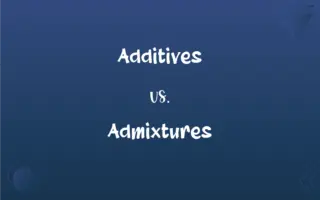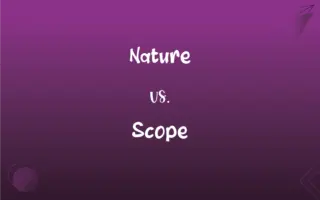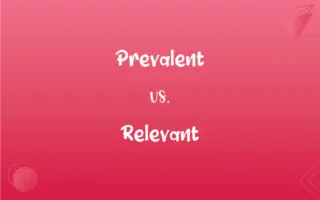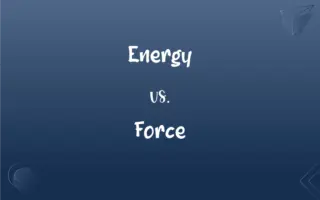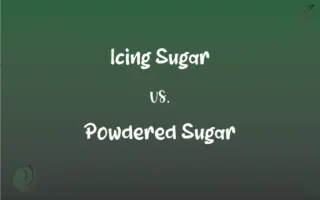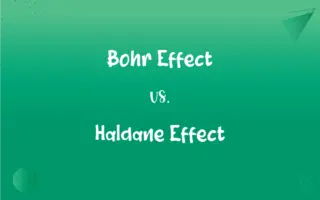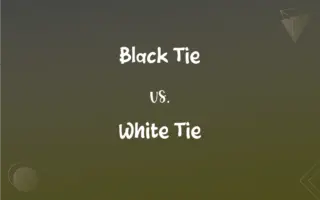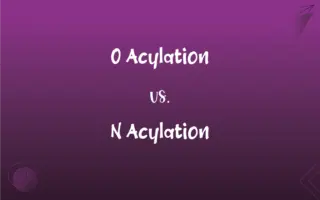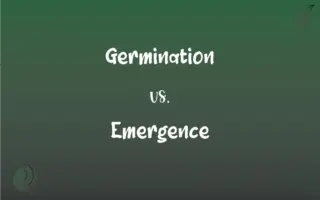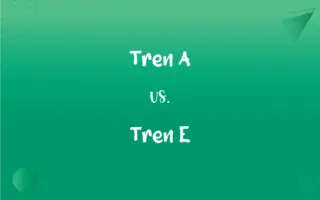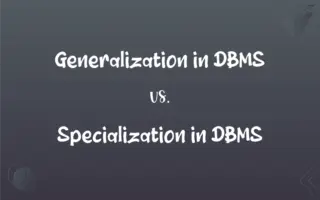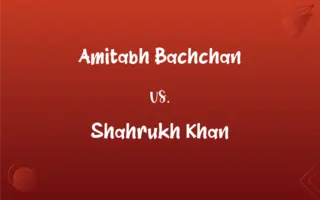Like vs. Love: What's the Difference?
Edited by Aimie Carlson || By Harlon Moss || Updated on October 6, 2023
Like implies a fondness or enjoyment of something/someone, while love suggests a deep affection or attachment.
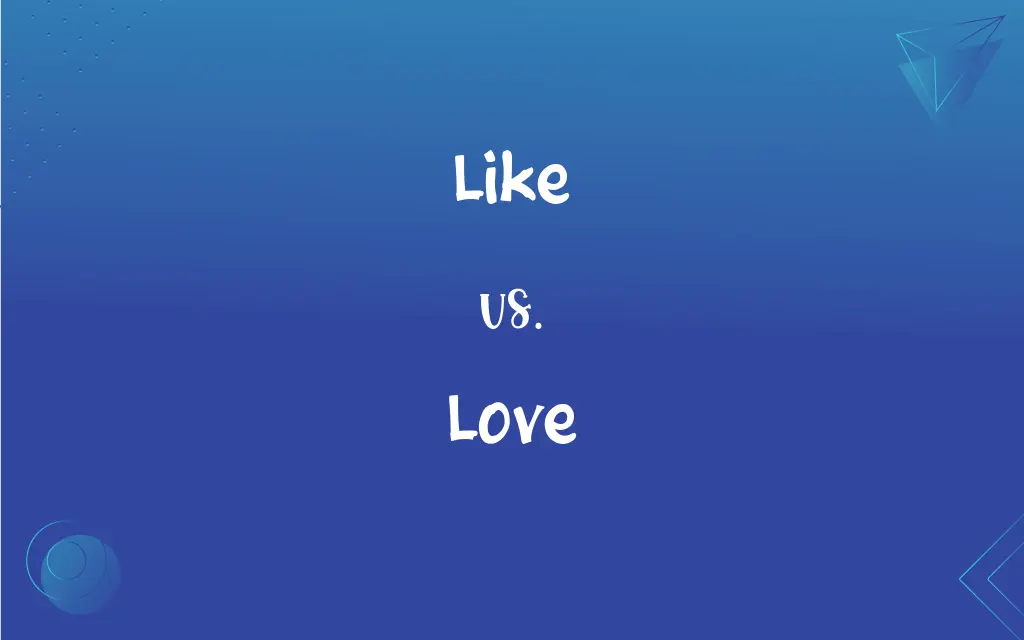
Key Differences
Like and Love establish the extent of affection. "Like" usually signifies a general affinity towards someone or something. In relationships, "liking" someone might mean appreciating their personality or looks without a deeper emotional connection. On the contrary, "love" suggests a profound, emotional attachment, often going beyond mere appreciation or common interests.
Like and Love also diverge in commitment and depth. When you "like" activities, food, or people, the emotion tends to be surface-level, possibly fleeting, and generally without a strong emotional bond. Conversely, "love," especially regarding relationships, incorporates a depth of emotion, often encompassing care, commitment, and a willingness to prioritize the loved object or person over others.
Like and Love represent varying intensities of emotion. Liking can be casual and can apply to inanimate objects and activities as well. For instance, you might like a type of food or a particular sport. Love usually indicates a deeper, more intense emotion, often reserved for people or entities that evoke strong, positive emotional responses and attachments that can be long-lasting and more personal.
In daily conversation, the terms "like" and "love" are sometimes used interchangeably, which may diminish the perceived intensity of “love”. For example, someone might say they "love" a type of food, using "love" in a casual, non-literal sense, which can blur the distinct emotional depth traditionally associated with love.
Comparison Chart
Grammatical Use
Can be a verb, noun, or preposition
Commonly used as a noun or verb
ADVERTISEMENT
Intensity
Represents a milder emotion
Indicates a stronger, deeper emotion
Application
Can be used casually in various contexts
Often used in more personal, emotionally impactful contexts
Duration
May imply temporary feelings
Suggests a more enduring or permanent emotion
Usage Example
I like chocolate.
I love my family.
Like and Love Definitions
Like
To feel attraction or have a preference.
Lisa likes going to the beach during summer.
ADVERTISEMENT
Love
A deep affection or attachment.
She expressed her love for her child.
Like
To resemble.
You look like your mother.
Love
A feeling of warm personal attachment.
Their love grew over the years.
Like
To feel affection for.
I like my friend because he is always there for me.
Love
A score of zero, used in tennis.
The score is 40-love.
Like
A preference or inclination toward.
It looks like rain tonight.
Love
A person toward whom love is felt.
She was the love of his life.
Like
To find something enjoyable or satisfactory.
I like the way this shirt fits me.
Love
A passionate affection for another person.
They fell in love at first sight.
Like
To find pleasant or attractive; enjoy
Do you like ice cream? I like your style.
Love
A strong feeling of affection and concern toward another person, as that arising from kinship or close friendship.
Like
To want to have
I would like some coffee.
Love
A strong feeling of affection and concern for another person accompanied by sexual attraction.
Like
To prefer
How would you like your coffee—with sugar or without?.
Love
A feeling of devotion or adoration toward God or a god.
FAQs
Is love always related to romantic feelings?
No, love can relate to any deep affection or attachment, not strictly romantic, such as love for family or friends.
Can like and love be used interchangeably?
While occasionally used interchangeably in casual speech, “like” and “love” generally express different degrees of affection.
Can like transform into love?
Yes, liking someone or something can potentially deepen into love as emotional connections strengthen.
How is “like” used in comparisons?
“Like” can draw a parallel between two things in comparisons, e.g., “He runs like the wind.”
Can “love” be used to express intense liking for inanimate objects?
Yes, e.g., “I love this song!” Here, “love” expresses intense enjoyment, not genuine emotional attachment.
Can “love” be negative or possessive?
While often positive, “love” can be expressed or experienced in unhealthy, possessive, or obsessive ways.
Can “like” be used to express non-romantic appreciation?
Absolutely, "like" can express enjoyment or approval without suggesting romantic interest.
How is “love” used in a non-romantic context?
“Love” can express deep affection or care for people, things, or activities without romantic connotations, e.g., love for a friend, activity, or food.
How do you express “like” or “love” towards activities?
You might say, "I like jogging" for casual enjoyment, or "I love painting" to express a deeper, more passionate interest.
Can “love” also be used in a platonic context?
Yes, “love” can express strong platonic affection, as in close friendships.
Can “love” imply sacrifice?
Often, yes. “Love” is commonly associated with a willingness to prioritize and make sacrifices for the loved person or thing.
Does “love” always imply a long-term emotion?
Not always, but “love” often conveys a sense of sustained, deep affection that may imply duration.
Can “love” be used to refer to humanitarian feelings?
Yes, “love” can denote a generalized, altruistic affection for others, such as love for humanity.
Does “like” always imply positive feelings?
Generally, yes. “Like” typically suggests a positive, albeit mild, appreciation or enjoyment.
Can “love” be unconditional?
It can be. Unconditional love refers to affection without limitations or prerequisites.
Can “love” and “like” both be used as nouns and verbs?
Yes, both words can function as nouns and verbs with nuanced meanings in different contexts.
Can “like” be used to describe physical similarity?
Yes, “like” can indicate resemblance, as in, “You look like your brother.”
Can “like” represent a soft version of “love”?
In some contexts, yes. “Like” can denote a milder, less intense form of affection compared to “love.”
Is “liking” someone the same as having a “crush” on them?
Not always. Liking someone doesn’t necessarily involve romantic interest, whereas a “crush” usually implies romantic feelings.
How is “like” used in social media contexts?
On social media, a “like” typically signifies approval or agreement and is often expressed through specific icons.
About Author
Written by
Harlon MossHarlon is a seasoned quality moderator and accomplished content writer for Difference Wiki. An alumnus of the prestigious University of California, he earned his degree in Computer Science. Leveraging his academic background, Harlon brings a meticulous and informed perspective to his work, ensuring content accuracy and excellence.
Edited by
Aimie CarlsonAimie Carlson, holding a master's degree in English literature, is a fervent English language enthusiast. She lends her writing talents to Difference Wiki, a prominent website that specializes in comparisons, offering readers insightful analyses that both captivate and inform.

